TEXT OF KEYNOTE ADDRESS DELIVERED BY COMRADE ADAMS OSHIOMHOLE AT THE 20TH WOLE SOYINKA LECTURE SERIES ORGANISED BY THE NATIONAL ASSOCIATION OF SEADOGS (PYRATES CONFRATERNITY), HELD IN BENIN CITY, EDO STATE , ON FRIDAY AUGUST 4, 2017.
20th Wole Soyinka Lecture: The Nigerian State in The Aftermath of The Centenary: Prospects For Its Indivisibility
Your Excellency, Governor of Edo State Godwin Obaseki, representative of the governor of Delta State, Professors Wole Soyinka and Itse Sagay, guest speakers, president and members of the National Association of Seadogs, invited guests, all other protocols observed.
I want to start by thanking the leadership of the National Association of Seadogs, organizers of this forum, for giving me an opportunity to offer my humble opinion on the prospects of Nigeria’s indivisibility, especially at this juncture in our nationhood, when the clamour for separation, restructuring and total balkanization have become the preoccupation in our national discourse.
Permit me to also acknowledge the immense contributions of the National Association of Seadogs since inception in 1952, to the growth of our nation through their various advocacy and humanitarian initiatives like the Wole Soyinka Lecture Series, The Medical Missions, The Street Child Project, The Citizen’s Summit and Our Votes Count campaign. These various initiatives have touched lives and broadened the scope of voluntary engagements in the delivery of much needed assistance in many communities.
On the topic for this lecture series, let me begin by saying that, the mere fact that Nigeria has celebrated a hundred years as a nation under one name is an indication that if its people who held on together for that long resolve to hold on together for much longer, there is nothing anyone from outside can do to make it impossible. Suffice it to say therefore, that the unity of this nation depends entirely on the collective resolve of its diverse peoples to live with one another in peace and harmony. But unfortunately, the national dialogue is presently centred on structural issues rather than leadership issues, imbalances rather than the issue of poverty and employment, whether leaders are delivering and at what level, who is not doing what and who is doing nothing. Looking at it critically, structure is such a nice word, even builders talk about structures and depending on the strength; a building can stand or collapse. So even builders understand the essence of what you might call, viable or the structural integrity of an edifice. If everything is right and the structure is faulty of course it can’t stand, so when people play up such words, it is natural for different people react differently. But my view is that, we do have solidly viable structures and ours is a situation where some people have become victims of having their attention diverted from the real critical issues of leadership and governance, to questions of ethnicity, the politics of sharing, how to manage and entrench poverty and take as given, a society that can offer everything to everyone and avoid discussing the paradox of such a wealthy nation but increasingly populated by people who are getting poorer and poorer. The UN welfare index year after year suggests that majority of our country men and women are simply getting poorer by the day and even official statistics which ordinarily should be very conservative suggest that more and more people have no jobs to do and in the absence of social security, to the extent that one man social security system cannot cover everyone. Personally, I run a one man social security system and I am sure everyone else present here run all sorts of informal social welfare systems in varying degrees by paying your brother’s school fees, settling your uncle’s medical bills for the surgery, bailing out a friend in need and so on. We all find one way or the other to provide for our relations especially when you work. That is what I refer to as a one man social security system. But for those families who do not have anyone, they are completely excluded, socially, but unfortunately right now the national discourse is not about poverty, wealth creation and distribution of wealth, rather we are discussing whether our structure is right or wrong.
As for those who say we were forced into becoming one nation, it is good they also know that not everything forcefully done that is wrong. What is important is how we make the Nigeria project a reality, to ensure that it delivers to all of its citizens, in such a way that each and every one of us has a basis to remain loyal to the nation state, not whether we should repartition. I just want to add, and this might sound provocative, that there is no part of Nigeria that is doing Nigeria a favour by being part of Nigeria. No one is doing the other a favour, who? I think we all need Nigeria more than Nigeria needs us. When I look at places we love to travel to, they are not homogeneous either, yet they have been able to take advantage of the opportunities provided by their nationhood to attract us as visitors for tourism, education, business etc. We should begin to appreciate what economists call the benefits of economics of scale, because when you do a cost benefit analysis, there is huge advantage in a large market that a united Nigeria offers everyone, particularly in a market driven economy like ours. With 170 million mouths to feed and clothe, you all know I come from the textile industry, if we had gotten our policies right, and all of us were wearing Nigerian made fabrics, we would have an industry that can employ 10 million young men and women to cloth all of us since we like to wear long flowing attires, including a cap and when you put everything together, one man is wearing 10 meters of fabrics material at every given point in time. We are generous in fabric consumption than any other tribe anywhere else in the world. All of that will translate into benefits for the textile industry and because we got our policies wrong all those factories have folded up and all of us here, unfortunately myself inclusive, from what we wear on our heads, to the one in the ear for the ladies, to what we wear on our bodies, the socks and the shoes we wear on our feet are all completely imported, because we have sustained and incoherent industrial policy. What we have achieved before, we have lost and today we are net importers of everything we wear and even a lot of the things we consume. I think what should engage our attention is an honest conversation on what we are not doing right as a people rather than how we share the dwindling resources from oil sales.
As we sit in this auditorium right now, I am certain that all the diversities of this nation, in terms of culture, religion and ethnicity are adequately represented. The very fact that we all sit here as Nigerians to brainstorm on the prospects for the indivisibility of the Nigeria nation, infers by implication, that we are actively seeking ways and making practical efforts to protect the unity of this country as one indivisible entity.
This brings up the question of what role we as Nigerians should play individually and collectively to guarantee the indivisibility of our motherland. The voice of a restless minority agitating for the divisibility of Nigeria is recently so loud and misleading that we all must be proactive in our reaction to the present state of the union. This is not the time for procrastination or indifference. It is a critical time for every Nigerian to stand up and be counted for what he or she desires for our country, which unarguably belongs to all of us. It is a constitutional duty and it is expressly stated in our national pledge “To defend her unity”. This is the time for the Igbo man living in Kano to declare his stand, the Hausa man living in Aba to declare his stand, the Yoruba man living in Yenagoa to declare his stand and the Edo man living in Jos to declare his stand. We do not need a referendum to convincingly argue our positions in this public discourse. Our Pastors and Imams have a role to play. Civil society organisations, humanitarian organisations, media organisations and community based societies should exert their influence upon their members to shun hate speeches that threaten the unity of this country.
I have said it elsewhere and I want to reiterate that the situation we find ourselves today is one where a vocal minority under the leadership of persons with anything but altruistic motives, capitalized on the seeming restlessness occasioned by years of irresponsible political leadership, to seize the national narrative and somehow succeeded in engaging the hardworking majority in a dialogue that has no focus, no vision, no sustainable ideology and no prospect of changing the circumstances of any Nigerian, other than enhancing the personal status of the initiators of this discourse. There is also a huge rate of under-employment at the level of the political elite and, once they are out of power, they come up with all kinds of agenda. Once they are in power, they shut up. As for those who talk about restructuring, it is instructive that they never speak of the specifics. Restructure, how? This is one word that can mean everything and also one dubious word that can mean nothing. To me, the only constitutional issue of importance at this time is devolution of power. But the problem is that the National Assembly members, once they get elected, rather than deal with the issue of devolution of powers, they begin to defend the status quo. Then there are those who talk about implementing the Confab report, and if I may ask, which of the Confab reports? Obasanjo had a Confab, and the PDP as a party organised Confabs twice. Every PDP President except Yar Adua organized a Confab. What happened to the Obasanjo Confab report? What is the difference between the report of the Obasanjo Confab and that of Goodluck Jonathan? And why did they not implement it or at least start the process of implementing it before they left office?
At independence Nigeria had three regions. Then Midwestern region was created in 1963 making it a total of four regions. In the aftermath of the war and during the period of national reconciliation, there was this clamour for the creation of states to bring government closer to the people and ensure that Nigeria is united, the center they claimed was too weak, and the regions too powerful to such an extent that they can undermine the stability of the center. General Gowon in response to these demands, created twelve states. Not long after, the same people started their agitations again using the same argument of wanting to bring government closer to the people and that twelve states were still too small. To assuage these agitations, General Murtala Muhammed created an additional seven states. When General Ibrahim Babangida became military president, the agitation for states creation continued and his government created an additional eleven states. The last states were created under General Sani Abacha as military head of state and as we speak, we have thirty six states and the Federal capital Territory. But just two days ago Prof. Bolaji Akinyemi, who no doubt is of the most respected voices in any circle on issues of policy both domestic and foreign, called for the adoption of the decisions of the 2014 National Confab. But we forget that one of the recommendations of the 2014 Confab is the creation of an additional eighteen states. Haba! Even the United States of America that our democratic system is fashioned after has a land mass of 9.834 million km², a population of 323.1 million, 50 states and the federal district of Washington. Nigeria has a land mass of 923,768 km² , a population of 186 million and thirty six states. Now add eighteen new states to the current thirty six states plus the FCT and you get fifty four states and the FCT. The point is that they insist we need more states because they want to bring government closer to the people. Now three years after the confab, people who are signatories to that document are saying, depending on where they are, that our present thirty six states are not viable and as evidence, though a dubious argument because it simplifies a very complex issue, is that states cannot pay workers salaries as at when due.
The real issue for me is that we do have leadership challenges and at the heart of those challenges is the question of corruption, because what has been taken by a few is simply not available for the rest and one does not have to be a professor of economics to know that because of the fact that resources are scarce, the more few people take and misuse, the less that will be available to address the social agenda that will impact on the quality lives of the people. Unfortunately those who are victims of this abuse of power are ignorantly echoing the narratives of the same people who have made life so miserable for them. But we have to speak to these people because if we don’t, the robbers will succeed in misdirecting us towards a different direction, while they continue to do what they are doing. Once upon a time in the not too distant past, one could drive from Enugu to Onitsha under one hour in a well built dual carriage way and according to Rev. Fr. Mbaka, part of that road over the past ten years has been overgrown with weed and one can hardly remember that it was once a dual carriage way. In my opinion, if anybody from the Eastern part of the country wants to complain about marginalization, it should not be in terms of how many people from that geo political zone that have been elected Senate Presidents, because while those were there why did they not build or repair such roads? For a part of the country that thrives on commerce, accessibility is very important. Without roads their businesses cannot thrive. The cost of moving goods from one place to the other becomes more expensive and makes them less competitive. In Edo state we had a leader of the then ruling party, and he fixed everything including all political concoctions, except the dual carriage way that passed through his own community.
Take the case of a former Minister for Petroleum Resources who has been indicted for her numerous corrupt practices. By the time she was done with looting our commonwealth we heard that her business partners, at least it is now on record and not in the realm of speculation, were from Kogi and Ondo states and she who was coordinating is from Rivers state. So even at the level of corruption, there is no consideration for sentiments of federal character or where you come from, it is simply a matter of who do you trust to loot with. So how does restructuring solve this problem? Let me also say that the victims, some of them are themselves also organizing. The last time I visited the Police Headquarters, they showed me a group of arrested armed robbery suspects, even by their names; Ibrahim, Osagie, Chukwuma, Olatunde etc you discover that even the criminals have complete federal character.
Truly, there are issues that demands a serious discourse, but beyond that there are now two main tribes in Nigeria, the tribe of the very rich with or without address and the tribe of the very poor also without address by reason of the fact that if you don’t have an employer, when the law enforcement agencies ask who you are, you say I am Adams and they ask Adams of where and you reply, Adams of Edo. When they go further and ask, where you work, you answer no, and they ask where you have ever worked, if you answer no, you have a wife and you say I cannot marry because I have no job, then you are profiled as a potentially criminal.
It is a pity we do not sufficiently interrogate people such that our political elite attempt to eat their cake and have it. It is these same people who persuaded our countrymen; many of them are still active now even at old age, that parliamentary system was not good for Nigeria, that the country needed a strong presidency. That is how they got the late Chief Rotimi Williams’ Constitution drafting committee to introduce the presidential system of government in 1979. They said we needed to have a strong center to keep the country together. The same people said we had imbalance in the regions, that the North was too big, that we had to create more states in order to bring government closer to the people. The same elites said so. And as I speak, if you check the archives of the National Assembly, you will find their signatures on petitions calling for the creation of more states. Now the same people, once they are out of power will tell you states are not viable. But they once agreed that the states were viable and their signatures are still in those documents. I think the media needs to do more investigative journalism, ask the leadership of the Senate and the House of Reps to bring all the petitions that have been forwarded to them over the last five years, particularly since they kick started the process of creation of more states. They even wanted more states to be created out of present day Edo State. Meanwhile what we seriously need to restructure is the attitude to governance, the issue of character, the issue of corruption, the issue of creative application of available resources, ensuring that government is about delivering the greatest good to the greatest number of people, and ensuring that we reorder our industrial policies in a way that emphasizes job-led growth, rather than jobless growth so that poverty can be reduced to a tolerable level. We must begin to get the private sector to create jobs and grow the economy and give everybody the basis to be loyal to the nation. This is the crux of the matter that Nigeria must seriously and urgently address. So as I said earlier I don’t know what people mean but I am clear that we need devolution of powers and review of the Revenue Allocation Formula. Those are the two things I believe are doable and they will transfer more resources to the states and the states can do some of the things that the Federal government is currently doing. If that is what they mean by restructuring then fine. But any suggestions about a return to regions, I don’t believe we should move from regions to states and from states back to regions.
The story of Nigeria is one of a shared destiny. Though we may differ in religion, culture and languages, we are nonetheless united in our struggles, history and aspirations. We are inter married, inter religious and inter dependent. Agreed that there are challenges and like every family unit, there are genuine grievances, some of us are restless and agitated, others feel short-changed. We are not perfect but going our separate ways will not make any of the separating units perfect either. If anything, it will only reveal, magnify and orchestrate the inherent weaknesses which are presently not obvious because of our unity. Eritrea fought for separation from Ethiopia, are they better off today? What about South Sudan? Is there any credible statistics to prove that separation from Sudan enhanced their economic status? In contrast, the unification of East and West Germany created a united German Republic that has become perhaps, the strongest and most viable political and economic giant in the world today.
On January 1, 2014 people from across the world converged in our capital city Abuja to celebrate Nigeria’s centenary existence dating back since 1914 when the British colonial masters under Lord Frederick Lugard amalgamated the Southern and Northern protectorates to become what is today known as Nigeria. The idea of the centenary celebration was, according to the government then, to draw the world’s attention to Nigeria, its people, history, achievements, and aspirations in the previous century of her existence, and the key concepts of the celebration was unity, indivisibility, virility, progress and promise to the Nigerian federation. Is it not ironic that barely three years after the entire world joined us to celebrate our centenary of successful coexistence; we are in the news for the wrong reasons, because some of our people suddenly want a divorce from the union?
As a country there is no doubt that we have survived very terrible situations. There have been moments of volatile political upheavals which had the potentials to destroy the unity of this country. Beginning from the 1966 military coup, through the civil war experience, the various religious crises and most recently though diminished, but the continuous terrorist activities of Boko Haram insurgents. We are also confronted with an ever increasing poverty rate and total lack of means which is exacerbated by corruption among the leadership class. This has resulted to a dangerous trend aptly captured by one commentator as a situation where ‘the poor cannot sleep because they are hungry and the rich cannot sleep because the poor are awake’.
The widespread incidences of thuggery, thievery, kidnapping and social vices can best be attributed to the prevalent economic conditions under which the members of the lower classes of society have been condemned to a battle for survival.
Suffice it to say therefore, that for the Nigerian nation to succeed in its quest for unthreatened unity in the aftermath of the centenary, the elite class in Nigeria need to rededicate themselves especially in the area of ensuring that as custodians of the commonwealth of the people, they make conscious efforts to ensure that the collective resources around which the economic prosperity of Nigeria revolves is deployed to the right purposes for the good of all, at all times and in all situations.
The issue of adequacy of social amenities, gainful employment, education and health for all; the establishment of the institutions that provide for social justice, equity, national self-reliance and good governance, must for once be brought to the front burner of national discourse. We cannot continue to pretend that we can achieve greatness as a nation if all our able bodied men and women who because of the rising economic and social insecurity brought about by the plundering of our commonwealth have not been able to eke out a decent living for themselves, are not provided with appropriate and adequate social security in terms of a sense of belonging to contribute to national development in a society where peace and justice reign. In this regard I must applaud certain initiatives of the President Buhari government like the N-Power and the National School Lunch programs which are geared specifically towards catering for the needs of our youth and children. Our nation must hit the reset button beginning with a collective will of the leadership class to do what is right to ensure that the people enjoy the benefits of the natural resources as they exist in our entire geographical space. . I think what will excite me is that we must continue to interrogate all the options available on how not to manage poverty but to create prosperity. We have to find a way not to give jobs in quotas but to create jobs for everyone. How long shall we continue to manage and panel-beat poverty?
For the Nigerian nation to continue to thrive in unity after one hundred years of corporate existence we must confront headlong, the issues that divide us, the challenges of ethnic and religious conflicts, nepotism and corruption, vice and avarice, intimidation and deprivation, absence of commitment to purposeful leadership. Political leaders must see themselves as chosen ambassadors of the people whose only reason for holding political position is to seek the greater good of the people they represent. We must learn to all refrain from the hate speeches and divisive interactions that have characterized our media space in the recent past, otherwise we stand to lose grip of the great opportunities that lie ahead of a united Nigeria.
God bless Nigeria.
Comrade Adams Oshiomhole mni, CON.
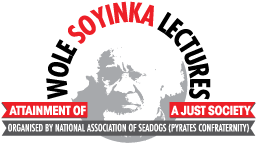
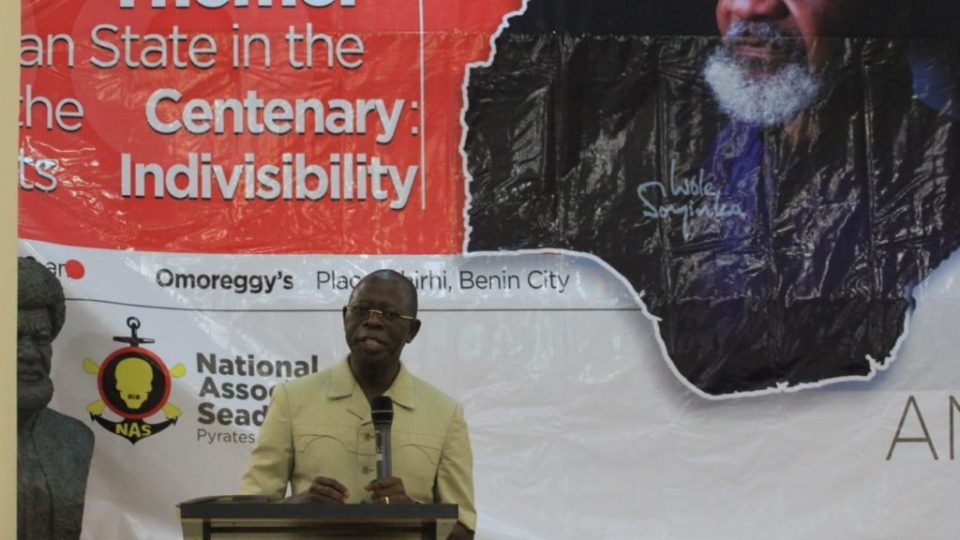
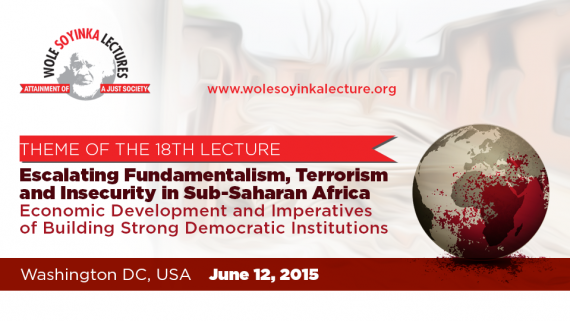
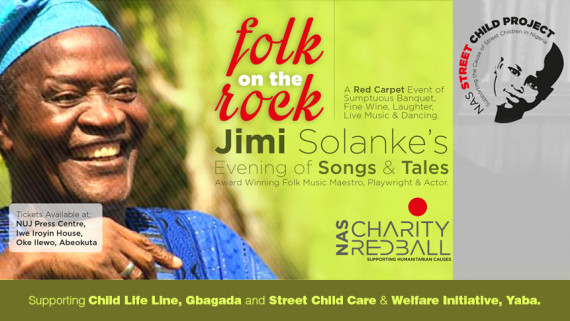
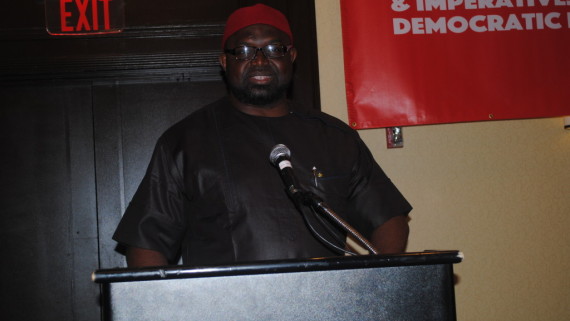
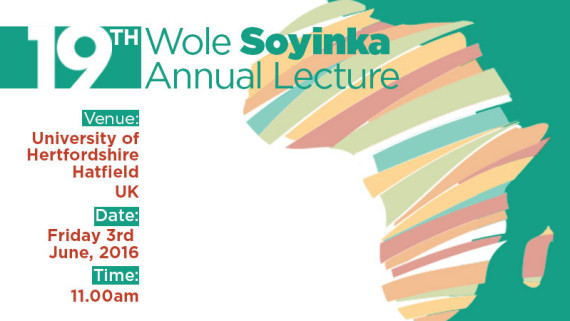
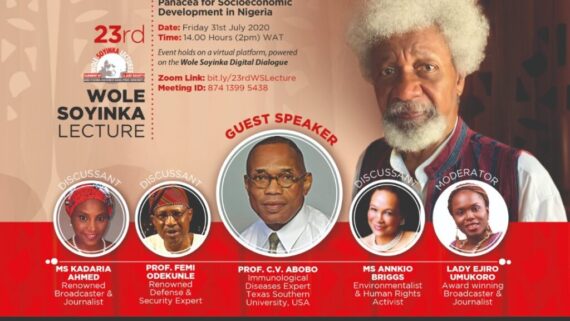
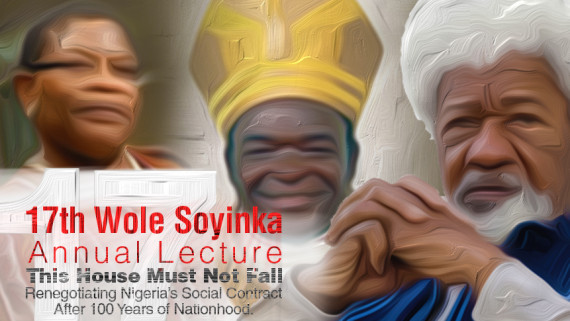
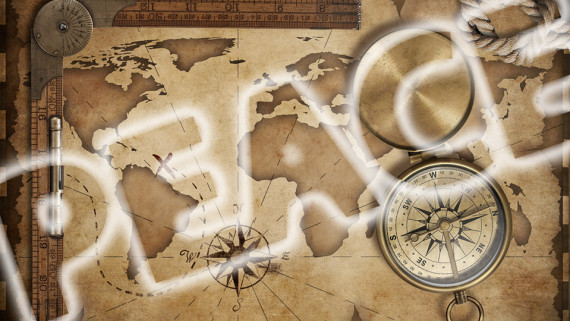
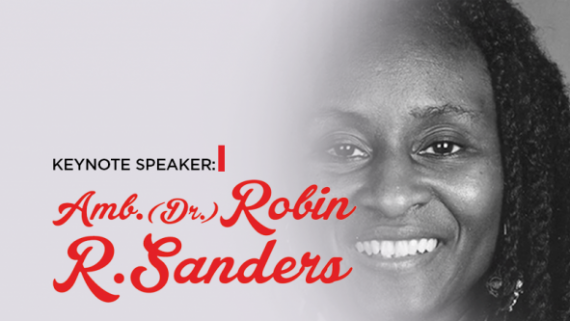
Comments
No comment yet.